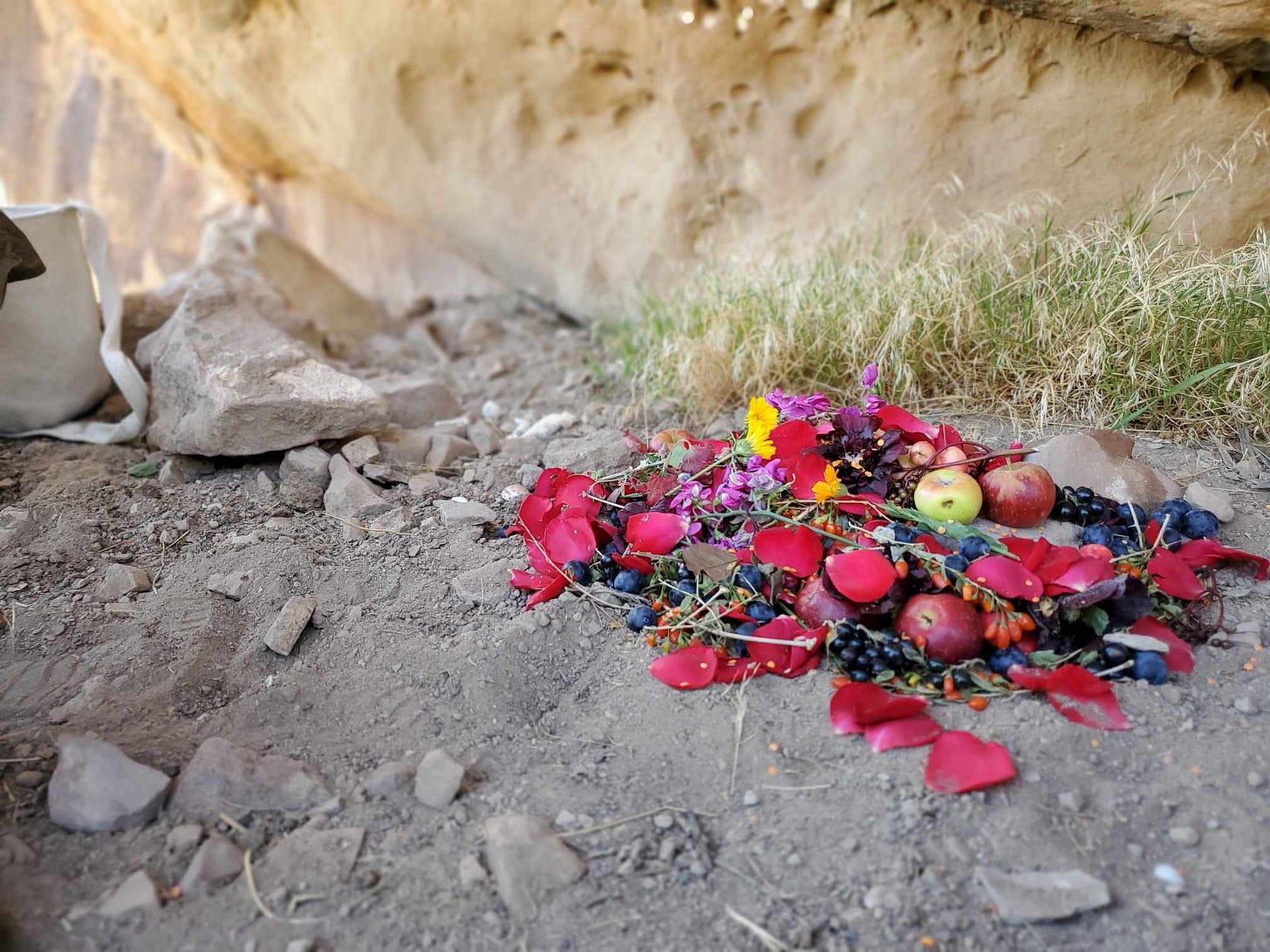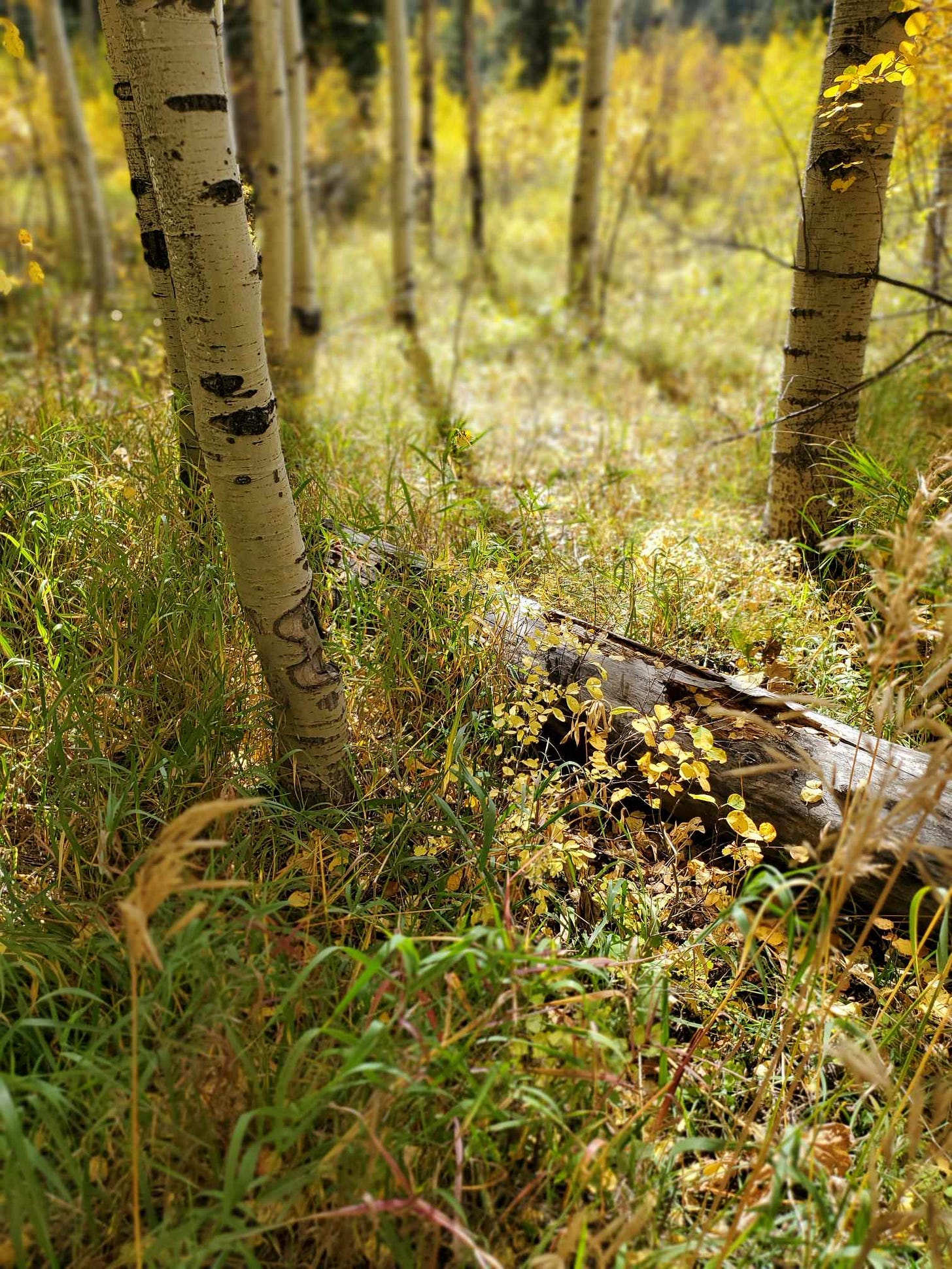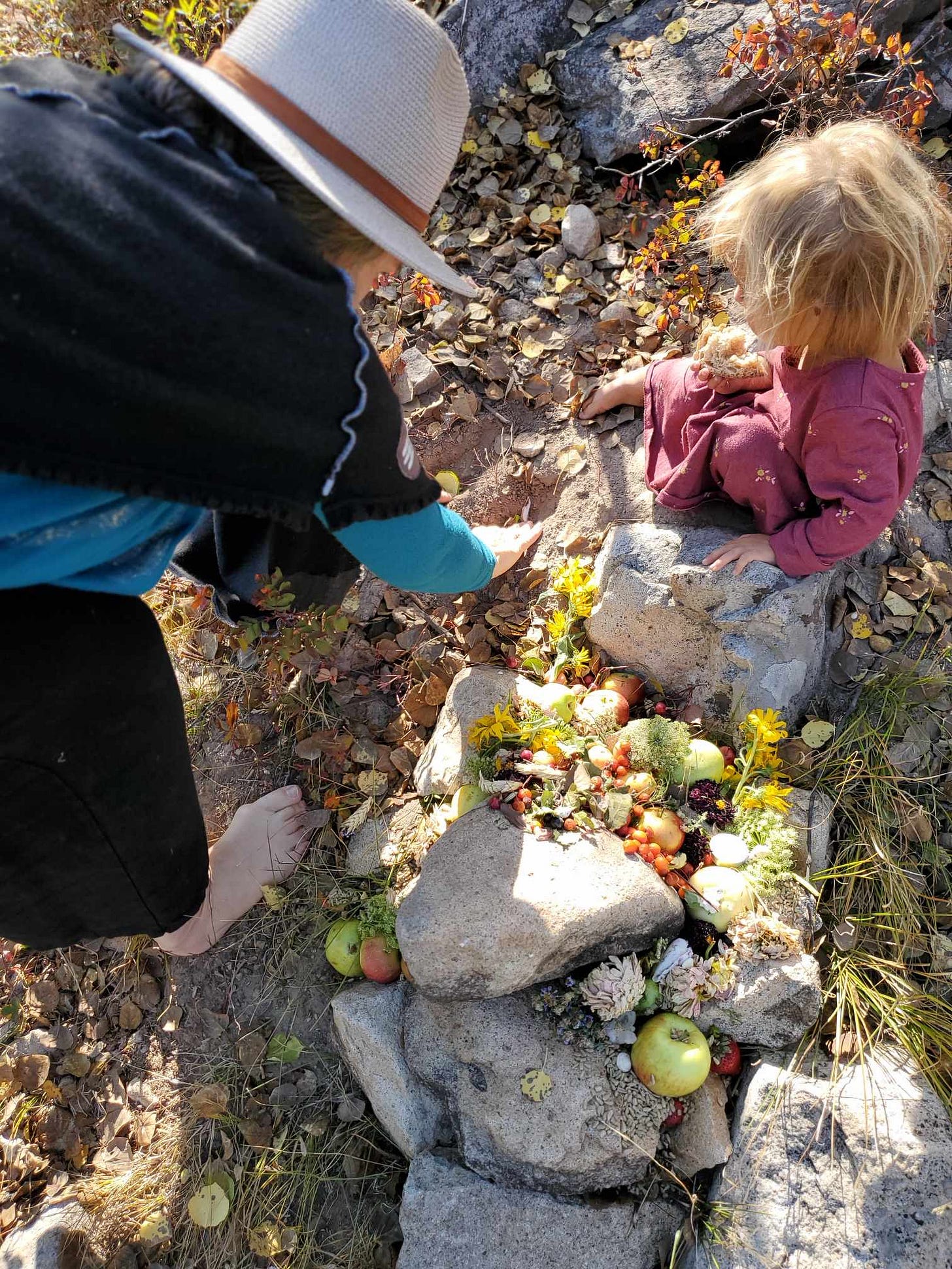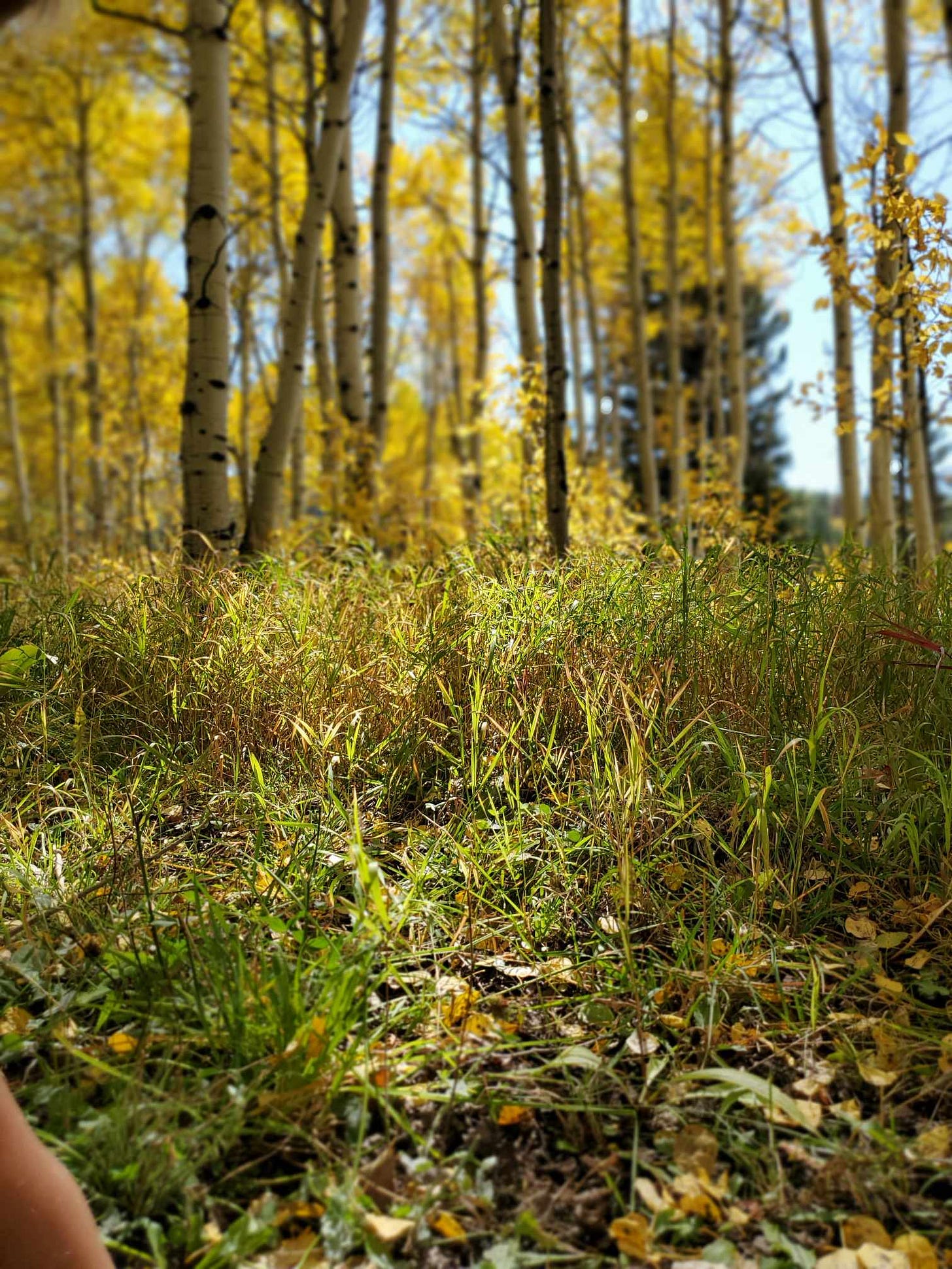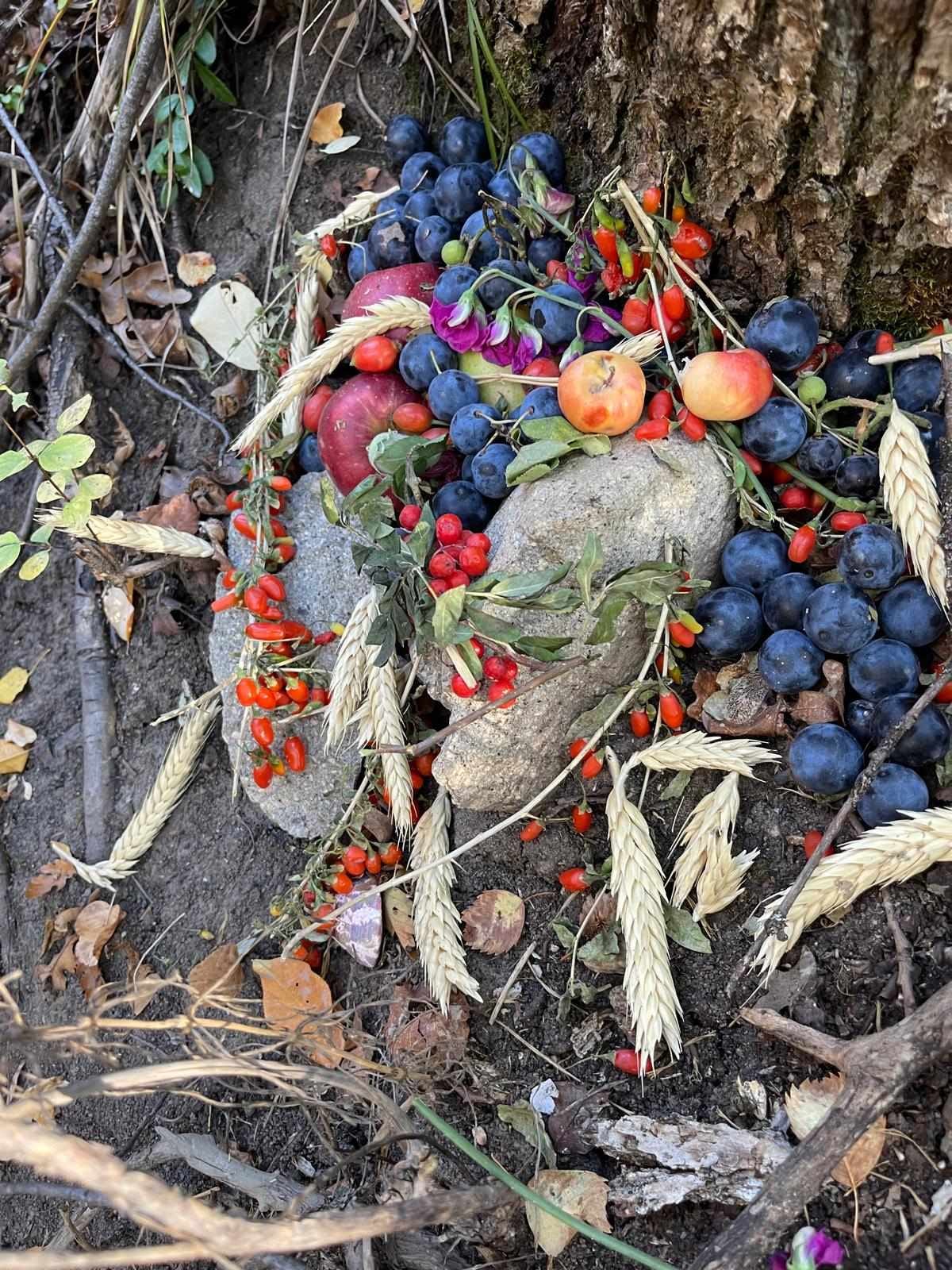roses on the rocks
water in the trees
I composed a piece of writing for Harvest of Voices this year. It was an odd piece of something, not even sure how to classify my writing sometimes, a bit of poetry, a bit of prose, a bit of neither.
It wasn’t selected.
Yesterday, when I went outside, the air felt so odd and fluffy, that I remembered my poetry/prose/neither submission, and I felt it had come to life in the quality of the air surrounding us and this mountain. It was a day of between-ish-ism. Luscious dark storm clouds surrounded us, but never poured. The air was still and concernedly hot for mid-October, and I swear, it felt like we were ocean-side. I could almost smell the salt water. And when the light came through it was heavenly, sideways, extra golden. It was oddly comfortable, otherworldly.
We went into the forest midday to harvest firewood and Scott told me he always remembers this particular flavor of sunlighting, because it’s when he used to plant garlic, year after year, down in the valley.
I planted garlic with him one year, grooved little ravines through the soil, planted one garlic clove after the other, in long fifty foot rows. Sow in October, harvest in June. Someone else owns that field now. I noticed they planted a patch of corn in a big circle this year.
So this thing I wrote haphazardly, quickly, boldly and in the moments I had to generate something worth reading, was an indirect pointing towards the interconnectedness of all water across the planet. I wrote about the soft-spoken weaving people of Northern Colombia who told us that in their culture, women don’t just represent water, they are water in the village. They are the trickling streams, raging rivers and lagoons. The source of life. The springs.
They told us, what we do to the water, we do to the women. What we do to women, we do to the water.
And I found it timely to share about this because I had just come across the incredible work and message of a Sangoma, or spirit medium, initiated in South Africa, who in August of 2023, had been “taken hostage” by the water spirits, given an urgent message, and warned that if she did not share this message as far and as wide as she could, there would be dire consequences.
So she shares this message as far and as wide as she can, and the message is this:
If we don’t stop polluting the water by June 2024, there will be major consequences, some of which include, water rising up to destroy civilization, beasts from the sea rising up, ethnic-based wars, and more.
When Japan decided and continued to pour over one million tons of nuclear waste into the ocean, it was seen as an act of violence and aggression against the sea, the water, the beings of the ocean, and now we are beginning to see what the Sangoma warned us about: the incredible devastation by water, fire and war.
Even more interestingly, the soft-spoken weaving people of Northern Colombia I mentioned before, also shared a message from the Mother (Earth), which said if the world leaders don’t agree to change the way they are treating the environment by June 2024, there will be major earth catastrophes by December 2024.
In Jonathan P. Thompson’s most recent post, On Climatic Dissonance and A New Water Year , he mentions all the concerning data both locally and nationally, and notes how the world doesn’t seem to be slowing or stopping or moving away from fossil fuels. In fact, fracking trucks were just seen going north on Hwy 133, towards a site historically fought for and protected by locals.
So, in the midst of all this, I took my family up the mountain.
We parked our machine as high as we could go and then hiked up another little while to get to the source of the spring that feeds the stream that runs through our land.
I wrote about this too, in my poetry/prose/neither Harvest of Voices submission, but the literary judges, apparently, were unimpressed.
We hiked up the mountain, carrying the most sacred and special substances we could find, with songs and tears and all the truth my heart was carrying at the time, and made a big beautiful offering to the water there, thanking her for being in our life, for running so beautiful and clean and asking for forgiveness for the many ways we have harmed her. Amara took her shoes off and splashed and giggled in the water, watching me curiously as I cried.
All of this was happening, of course, as this teetering project of piping the ditches along Mt. Lamborn was being discussed, explored, developed. They want to pipe 17 miles of open ditch, water that has been historically in the watershed since time immemorial, in the name of “water conservation” and “salinity control”, effectively making it disappear from the landscape, ecosystem, wildlife, etc.
This is all very personal to me, you know, to my family, our lives, my heart.
And I wrote about the whales, the grandmother who protects them. She’s this gnarled-knuckled oceanic beast of a woman whose voice revives sea turtles and hails the storm. I wrote about how in New Zealand, they measured the song of the whale and found that the song could be detected all the way up into the mountains.
I wrote about the midnight water. The woman’s prayer. How the song of the frogs weave a web of connection with the rain.
It feels at this point on earth, anything we can do to thank, acknowledge, feed, inspire reverence for, dance with, sing to, grieve for the Earth and all the systems and elements that make us living here possible, is a good idea.
May you be inspired to do this today.
Thank you for reading this edition of Wild Leaf! The sun has risen and a new day wakes up, along with my wild-haired feral child and our five hungry goats.
May these words do go things in the world today.
All photos taken by me or a friend on our most recent journey of giving back to our bioregion. We feed eight sites around the area here, with offerings, songs and remembrance, every three months.


